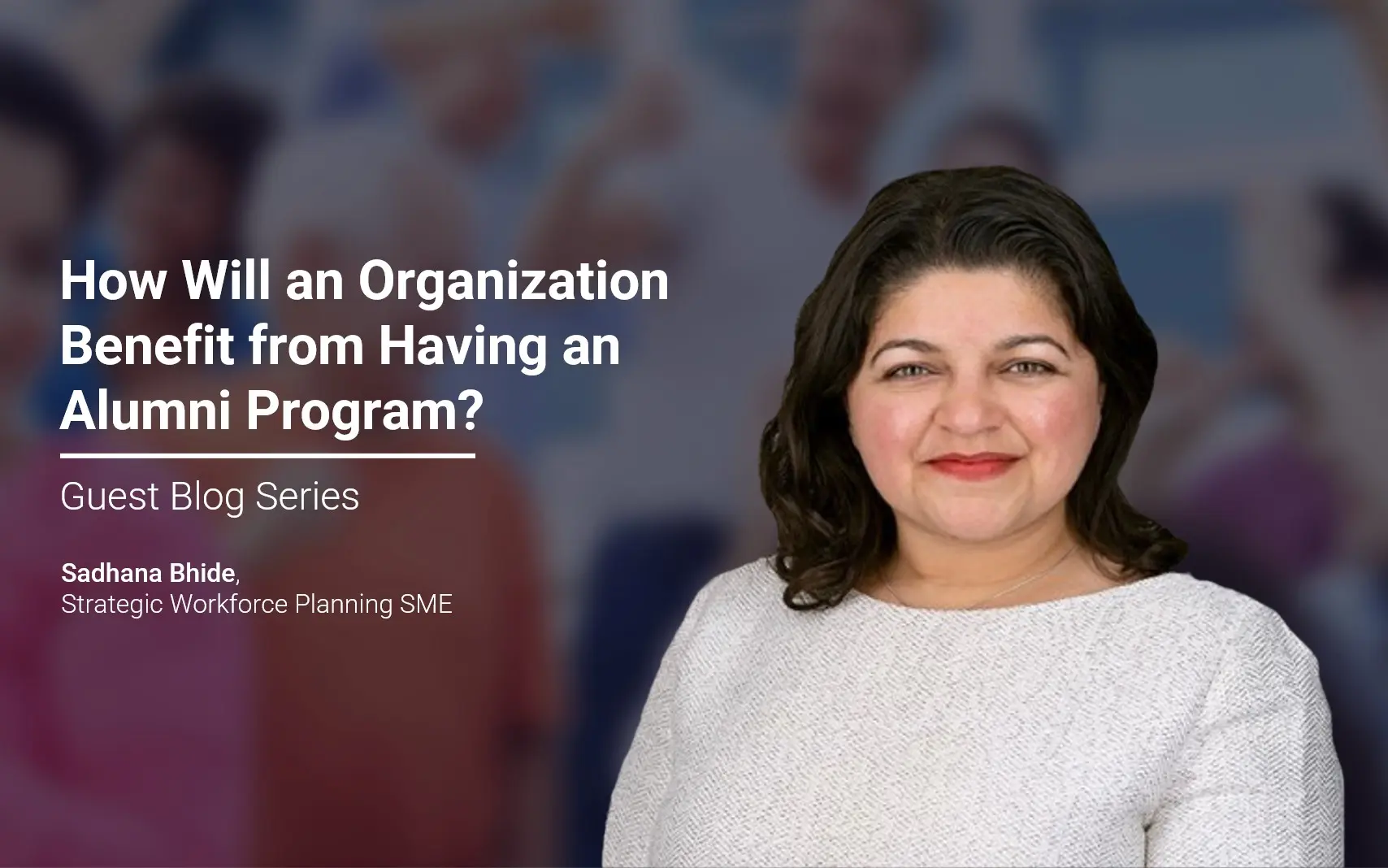University Alumni vs Corporate Alumni: What Enterprises Need to Know
Explore how corporate alumni differ from university alumni and why companies rely on alumni networks for recruiting, business development and...
Read more
Sadhana ran the award-winning Barclays Global Alumni programme, created the London Alumni Directors Forum and continues to share Alumni Management insights

For many individuals, Alumni programs are associated with their former school or university, sports club or other social group. It is an opportunity to reminisce over shared experiences, reconnect with friends and acquaintances and visit familiar locations and environments.
Employees will often take the initiative to form localised Alumni groups based on their team connections, location, or project group. The life of these groups is dependent on the good will and efforts of volunteers, and are often self-funded, which can be limiting.
From an organization's perspective, do Alumni program activities – pleasant as they are - support the organization's goals and the employee career experience? The answer is yes, they do.
For most organizations today, they are operating in a volatile, uncertain, complex and ambiguous environment. This requires them to be able to pivot rapidly to changing external circumstances, flex skills to the work needed at that moment in time and take a longer-term view on their business strategy. Successful organizations will have the employee experience top of mind as a means to drive engagement and loyalty.
The offboarding experience is now as important as the onboarding experience within the employee lifecycle. This is particularly relevant with average tenure in role falling and changing jobs every few years is now considered the norm. A BBC news article cites that 5 years is the average period an employee stays with their organisation; for the US it is 4 years. When tenure is assessed on an industry specific basis, there are wide variations, eg in the US tech industry, average time with an employer is 3 years. There are generational differences too, with baby boomers typically having longer employment periods with the same employer vs millennials.
Staying connected becomes more of a challenge and a corporate alumni network can overcome this. Instead of investing in employee relationships for the few short years they stay at your company, you are investing in lifetime relationships that can benefit your organization in any number of surprising ways.
From my own experiences of leading the global Alumni program for Barclays, ensuring that the Alumni member experience was engaging and of benefit underpinned all activity. For Barclays, we wanted to create a network between current and former employees to build a strong network for sharing experiences, knowledge and advocacy of both colleagues and the organization. My observations during my time running the programme were that members appreciated being kept up to date with developments with the bank, with current and former colleagues, and sharing in successes. Members valued being informed about career opportunities early on and we valued Alumni as rehires. What I found from my interactions with Alums were the positive memories they held about Barclays and their career experience there, and how much it helped them in their next career step. The network was also highly valued, particularly for those taking the entrepreneurship route and seeking knowledge and connections in specific fields.
From a brand, reputation and business perspective, many colleagues expected an organisation such as Barclays to have an Alumni programme plus an expectation that they would be invited to join upon leaving. The willingness and interest in joining the programme supported campaigns to build membership through enthusiasm for the network.
The benefits of having an Alumni program that is set up and run by an organization are:
Employee experience
Most employees in large organizations expect there to be an alumni program available for them to join after they leave.
Creating a network
An active alumni network between current and former colleagues encourages knowledge sharing and referrals for business. It also encourages former employees to either return to the business or recommend open roles to friends who they know would suit the culture.
Building advocacy
Employees who choose to join an Alumni program tend to have a positive view of the employer, therefore will be advocates of the organization to external people. Alumni of organizations with high performing environments are keen to showcase their association with the culture and benefit from company's profile.
The budget and resource required to set up and run a corporate Alumni program is usually quite low. Building a network of Alumni ambassadors from existing employee volunteers offers individuals an option for a ‘stretch assignment’, and with senior stakeholder buy-in this can be seen as a high-profile project. Having a tech platform enables task automation and easier program administration, such as managing membership requests, member communications, reminders, and also reporting on membership profiles. The other main benefit is releasing time through automation of tasks, enabling consistency and timely communications. The other key benefit is tracking and reporting trends to help with decisions activity, budget spend and where to focus resource.
Looking back on my experience managing a corporate Alumni programme, it is the Alumni experience via the programme which really makes the difference for the individual member. The experience can be in various formats and types, but the common denominator is the ease and quality of connection to the organisation.
Part 4: What Do Alumni Value and Expect Most From their Member Experience?
Sadhana is the SME for Strategic Workforce Planning at Pearson and works with organisations to develop and build their SWP strategy. Sadhana is an experienced HR specialist who has worked in various HR roles in banking (Barclays), wholesale distribution (Rexel Groupe) and broadcast media (ITN). Sadhana is viewed as an expert in career transition and headed the Barclays Career Transition Services team for 4 years. Alongside this, Sadhana ran the award-winning Barclays Global Alumni programme, created and chaired the London Alumni Directors, and continues to share insights on best practice for Alumni programme management.
Sadhana is a published author, having contributed her research to the SAGE Handbook of Mentoring (2017), and holds an MA in HR Management from the University of Westminster and a BSc in Genetics from Queen Mary, London University.
NEWSLETTER


Explore how corporate alumni differ from university alumni and why companies rely on alumni networks for recruiting, business development and...
Read moreDecember 9, 2025
Your focus should be on 'How' to launch a corporate alumni network, not 'If' - for its competitive advantage, insights and community building.
Read moreNovember 6, 2025
Wondering what an alumni is? Learn about how corporate alumni networks drive ROI, and why EnterpriseAlumni is the leading platform to build and...
Read moreOctober 21, 2025
Build new revenue streams, save on recruitment and enhance your employer brand, all through the power of alumni.